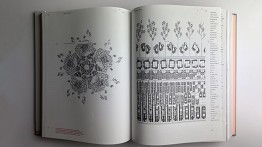The Diane Lewis Student Lecture Series | Charles Waldheim: Agricultural Modernization and Collective Memory — 50 Species-Towns
Thursday, September 19, 2024, 6:30 - 8:30pm

Image courtesy of Charles Waldheim.
This event will be conducted in-person in room 315F and through Zoom.
For Zoom attendance, please register in advance here.
China’s rapid urbanization has come at the expense of its agricultural countryside. As China has urbanized, its rural villages and landscapes have been subject to environmental degradations, economic disparities, and societal inequities. In response to these challenges, China has proposed a series of rural planning and reform programs. Yet the history of agricultural modernization in the United States illustrates the dangers of cultural erasure and environmental devastation associated with these programs. 50 Species-Towns presents an alternative model for agricultural modernization and agrarian new-town planning in China. This model is derived from a close reading of Chinese agricultural history and village life in support of the vital economic, environmental, and societal reforms currently underway.
The lecture will be followed by a Q&A moderated by Vasily Chumakov.
Charles Waldheim is a North American architect and urbanist based in Cambridge, Massachusetts. Waldheim’s research examines the relationships between landscape, ecology, and contemporary urbanism. On these topics, Waldheim is author, editor, or coeditor of numerous publications on these topics, including Landscape as Urbanism: A General Theory (Princeton University Press) and The Landscape Urbanism Reader (Princeton Architectural Press). Waldheim developed the theory of landscape urbanism in response to the industrial economies and emergent ecologies of the American city. On this topic, he curates the Harvard GSD’s Future of the American City platform with support from the Knight Foundation.
Waldheim is John E. Irving Professor at the Harvard University Graduate School of Design where he directs the school’s Office for Urbanization. He also serves as the Ruettgers Curator of Landscape at the Isabella Stewart Gardner Museum in Boston where he convenes The Larger (Landscape) Conversation. Waldheim is recipient of the Rome Prize Fellowship from the American Academy in Rome; the Visiting Scholar Research Fellowship at the Canadian Centre for Architecture; the Sanders Fellowship at the University of Michigan; and the Cullinan Chair at Rice University. He has been a visiting scholar at the Architectural Association School of Architecture in London and the Bauhaus Foundation in Dessau, Germany.
The Diane Lewis Student Lecture Series is endowed by Elise Jaffe + Jeffrey Brown.
This event is open to current Cooper Union students, faculty, and staff.
Located at 7 East 7th Street, between Third and Fourth Avenues




